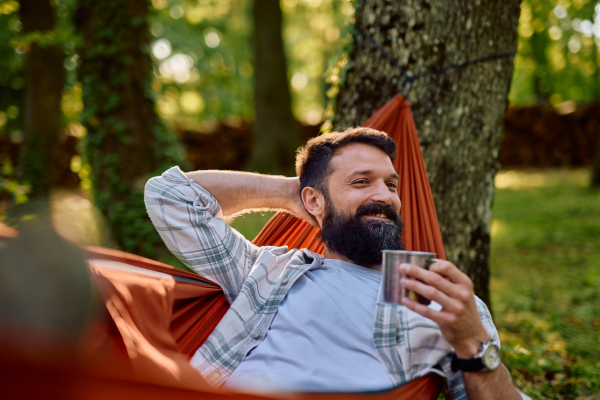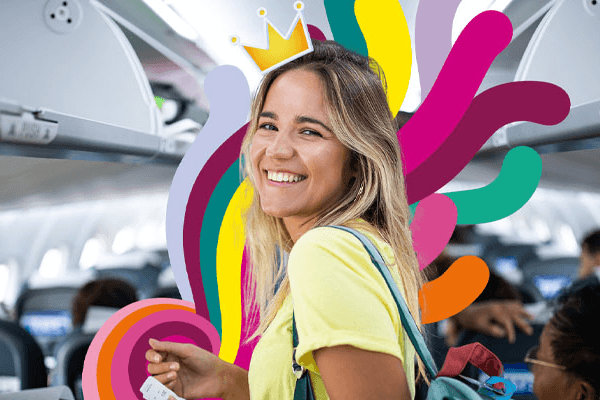The Travel Rest: Aussies are using holidays to recharge their minds
We’ve all seen it before. A friend returns from a week away and suddenly there’s a glow about them. They’re calmer, lighter and looking forward to getting back into their routine. Often, we feel it ourselves, that sense of perspective and renewal when we come home from time away.
This isn’t just holiday hype. For many Australians, travel is becoming more than a chance to explore new places. It’s increasingly part of how people look after their mental wellbeing.
Mental health is front of mind here at home. ABS data reveals that 42% of Australian between 18-65 saying they have experienced a mental health struggle at some time in their life. There has been increased media attention on mental health and growing recognition that mental health is as important as physical health.
Why travel matters for mental health
Psychologist Christine Bagley-Jones suggests that travel can be beneficial for our mental health. While not a cure, it is one activity that can support our wellbeing in many ways that travel can be beneficial for our mental health. While not a cure, it is one activity that can support our wellbeing in many ways:
- Relief from stress: According to a University of Queensland study, even a short break can improve self-reported wellbeing and restore cognitive capacity.
- Connection and belonging: A 2022 ABS report uncovers that approximately 20% of Australians aged 15 and over reported often feeling very lonely, a trend that has remained consistent over the past two decades. Travelling, has been shown to contribute to social engagement reduced isolation and improved general psychological wellbeing
- Movement and nature: Being outdoors or physically active is proven to lift mood and energy. The AIHW identifies physical activity can be a key factor in improving mental health and wellbeing. For many, travel is the nudge that gets them moving.
- Get into nature: Travel has the unique benefit of pushing people to get into different environments, and this can often be seeing nature from a different part of the world. Researchers recommend ‘nature prescription’, as spending time in nature can be a good way to boost our physical and mental health.
It’s not the length of the trip that matters
It doesn’t have to be the long (and expensive) trips to take care of your mental health, it can be short trips to enjoy the benefit of travelling. A study by Carnival Cruise shows that one-third of Aussies feel refreshed after just a 3-5 day break.
UniSA researcher Dr Ty Ferguson notes that even after short trip, like a 3-day weekend, people have healthier lifestyle habits and enjoy the health benefits of more sleep and more movement.
This is consistent with the trends we see in Medibank Travel Insurance, with short stay trips up 29% in FY25 compared to the previous year.1 This can be for multiple factors such as the increasing cost of living, but it’s evident that Australians are still prioritising travel and getting value from their short trips. Popular destinations of these short trips include domestic locations and international hotspots like Bali, New Zealand, and Japan, all a short flight from Australia.
The power of anticipation
The benefit of travel isn’t just in the destinations and experiences, it’s also in the mindset shift that starts from the moment you book your holiday. Just having a holiday on the horizon can provides a significant boost to happiness because positively anticipating the future can generate positive emotions.
Research in 2024 by Carnival Cruise found that 78% of Australians feel like they need something to look forward to now more than ever. It also found that 87% of Australians feel happier, and 59% feel more productive when they have a holiday to anticipate.
Common blocks for taking that holiday and how to manage them
If you thought of going on a holiday but didn’t end up doing anything, don’t worry, you’re not alone. Planning a holiday can be overwhelming, from navigating countless websites and offers to tying up all the loose ends at the last minute like travel cards and travel insurance. But there’re ways can help manage these obstacles.
- Rising costs: as the cost of living is increasing, household budgets are getting tight. But this doesn’t mean you can’t enjoy travelling at all.
- Short trips: instead of a long expensive trip, planning for a short close-to-home holiday, can be more cost-effective and can still get you the mental health benefits.
- Creating a budget can also a be a good way to ensure costs are under control and an enjoyable experience without breaking your bank.
- Maximising free local activities: not all good experience costs money, there are usually plenty of free local activities at your destination (like local market, festivals and events) that can offer equally enjoyable and fun experiences.
- Decision overload: with so many decisions to make, too many choices can create a decision overload which can lead to feeling stressed then giving up on the idea. To help manage this, we have a few tips:
- Plan the plan: give yourself plenty of time to research and plan. When taking away the time pressure, researching on your travel destinations and designing your travel experience can be an enjoyable exercise.
- Tackle planning in chunks so you don’t need to make all the decisions in one go. Booking flights, accommodation, or activities at different stages of planning, can also help spread the prepaid expenses over time, making it more manageable together with other commitments/costs in life.


